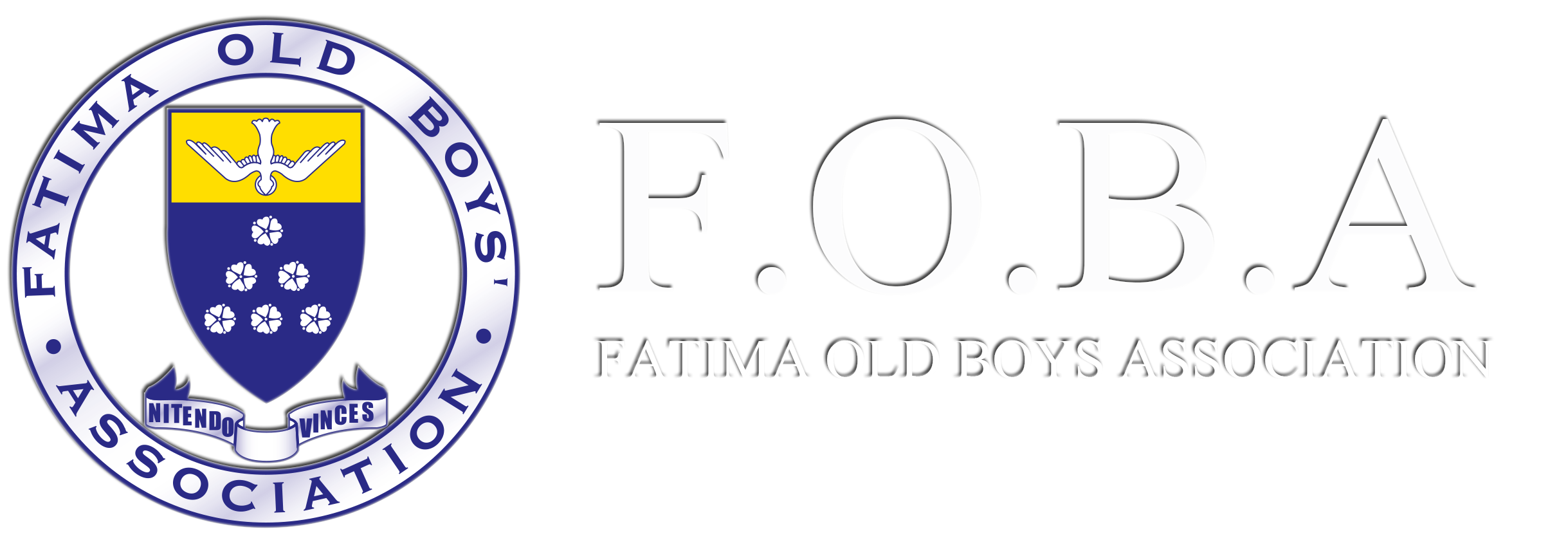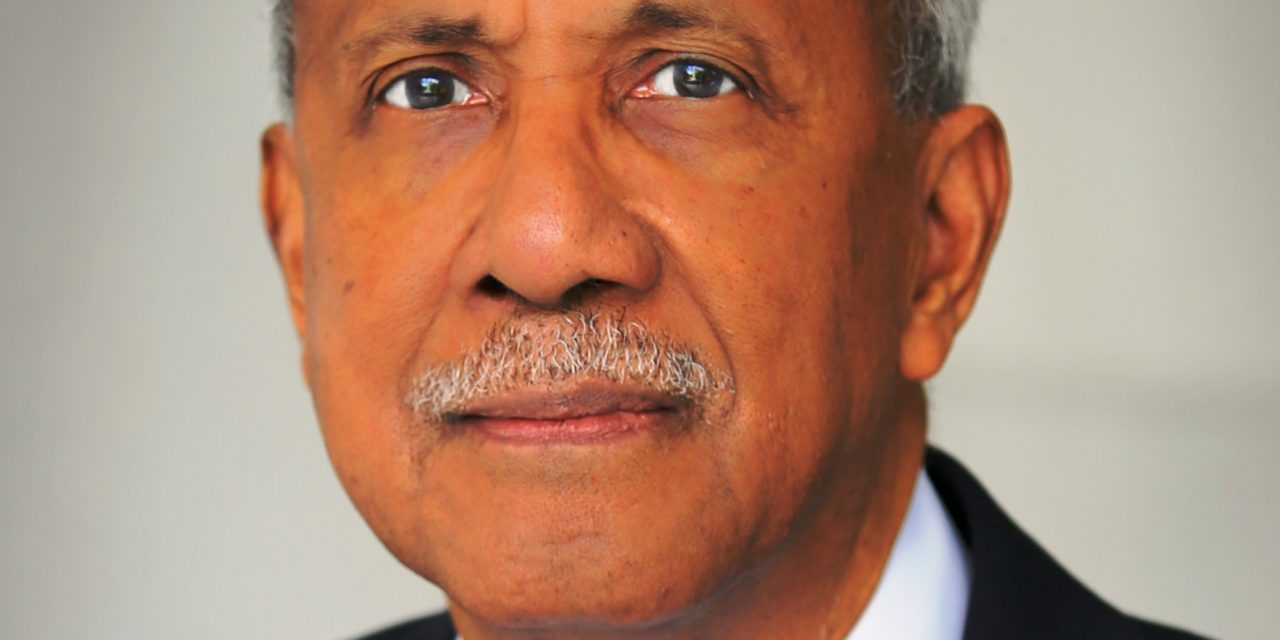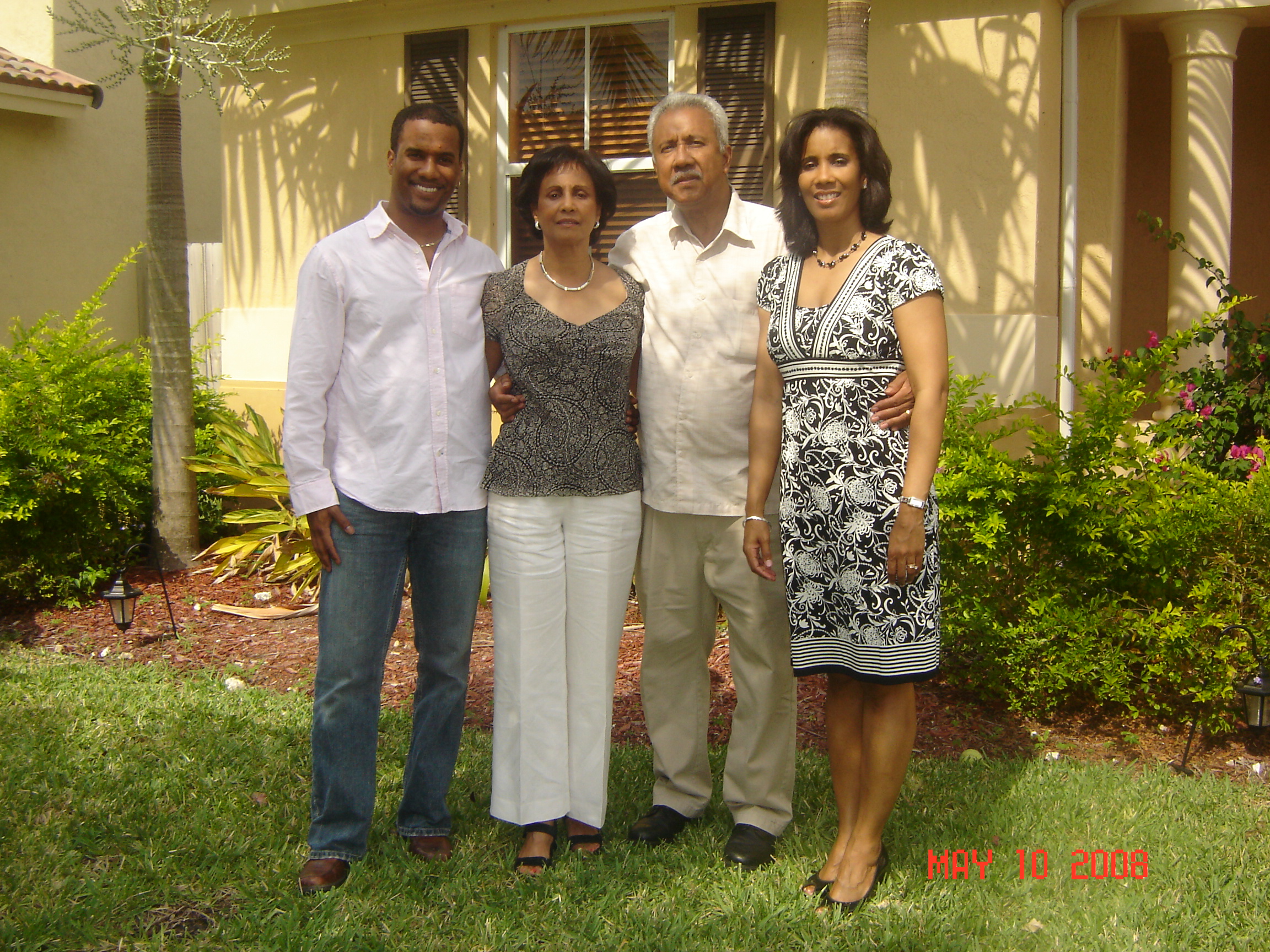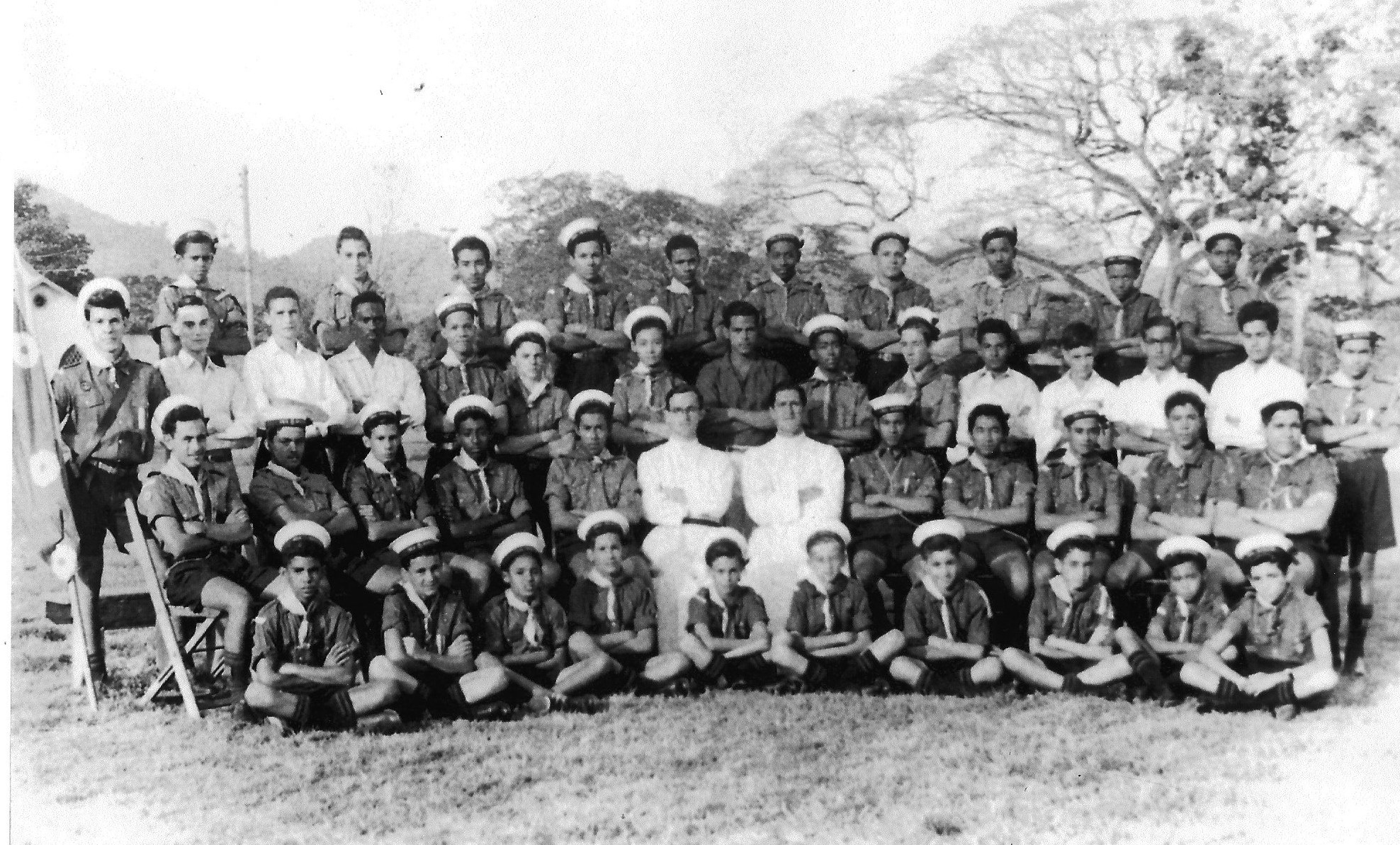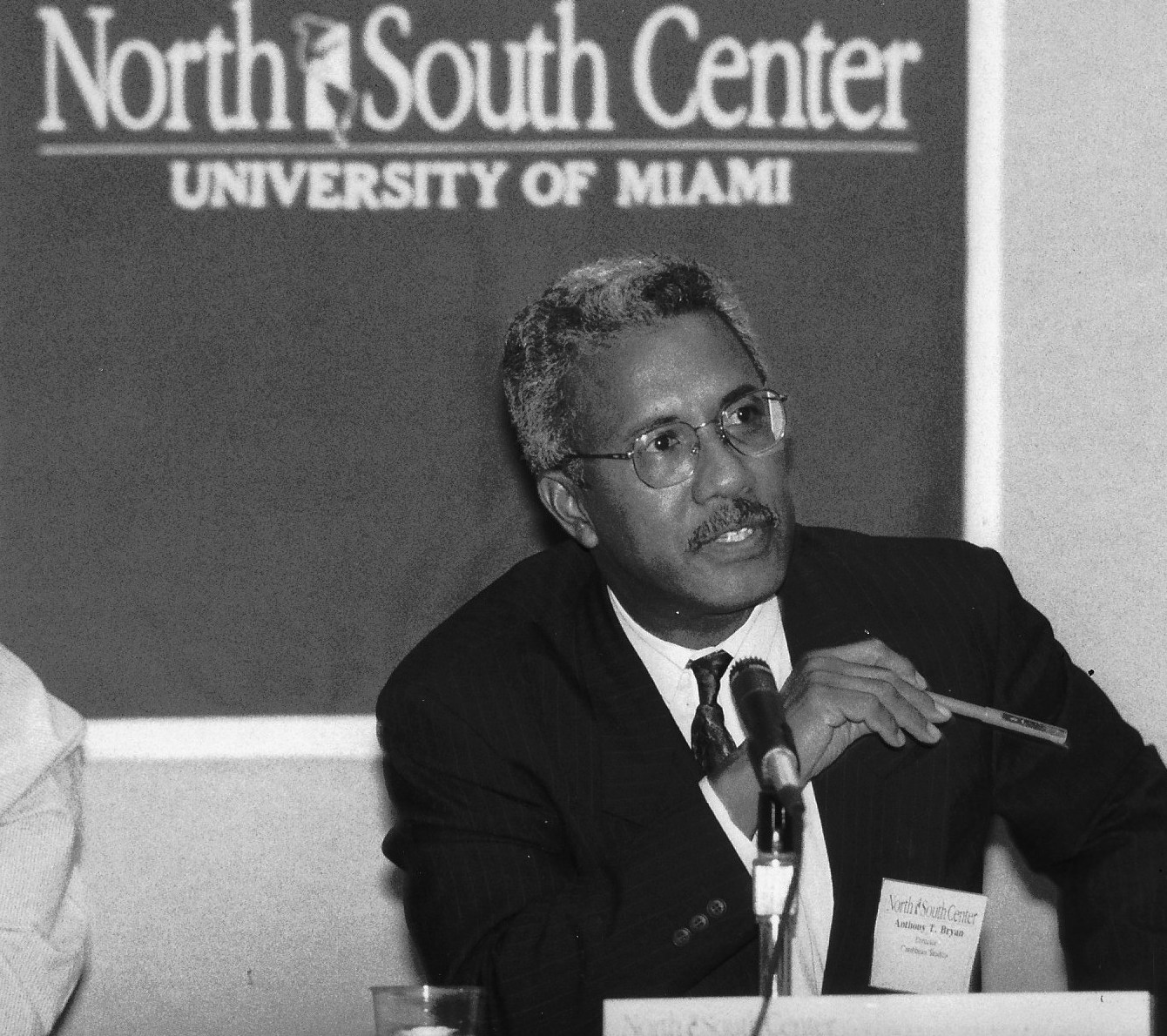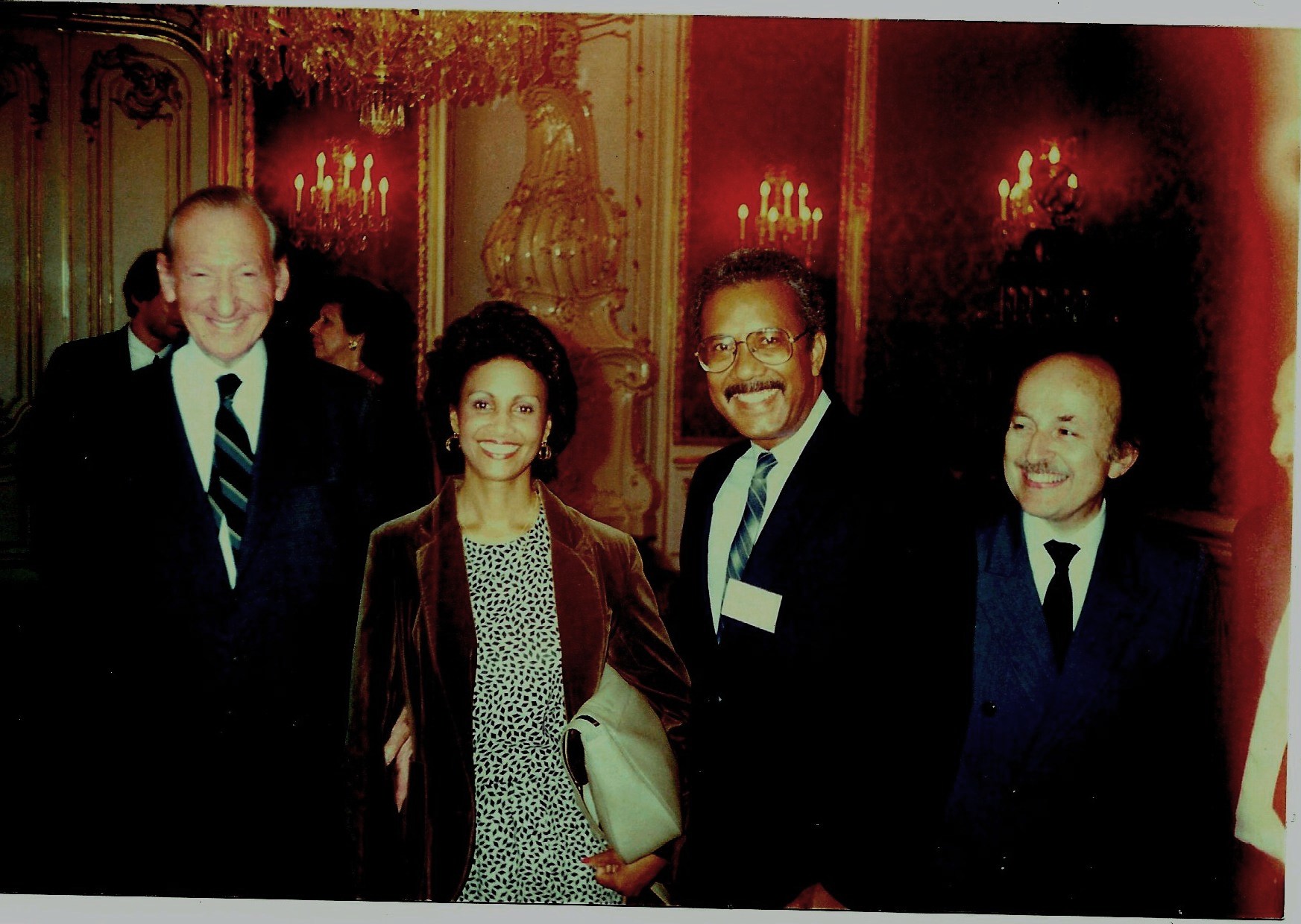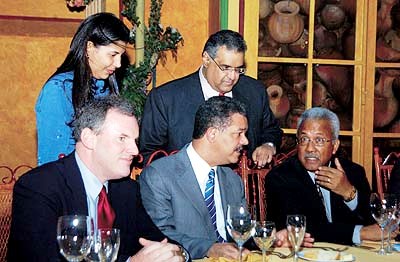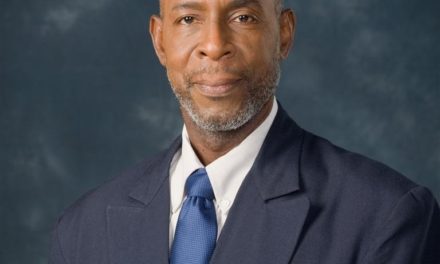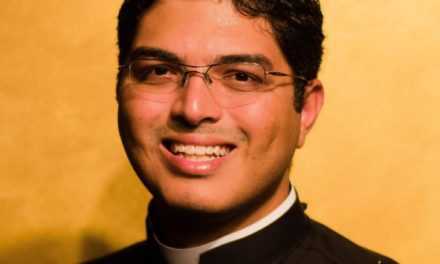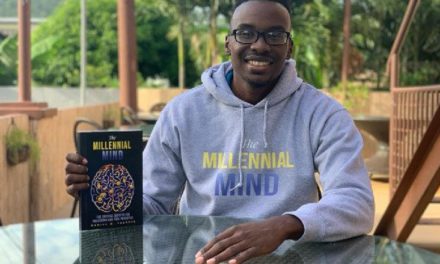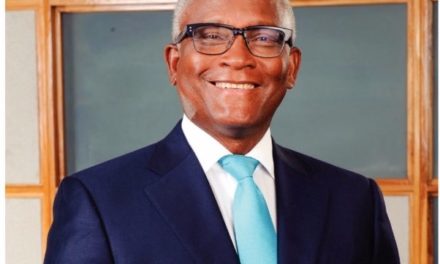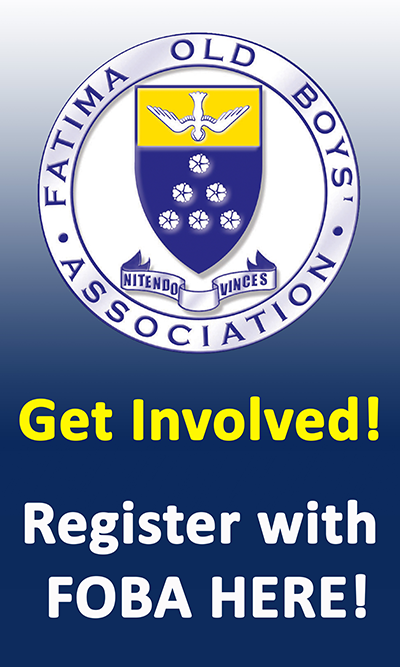- Views 2357
- Likes
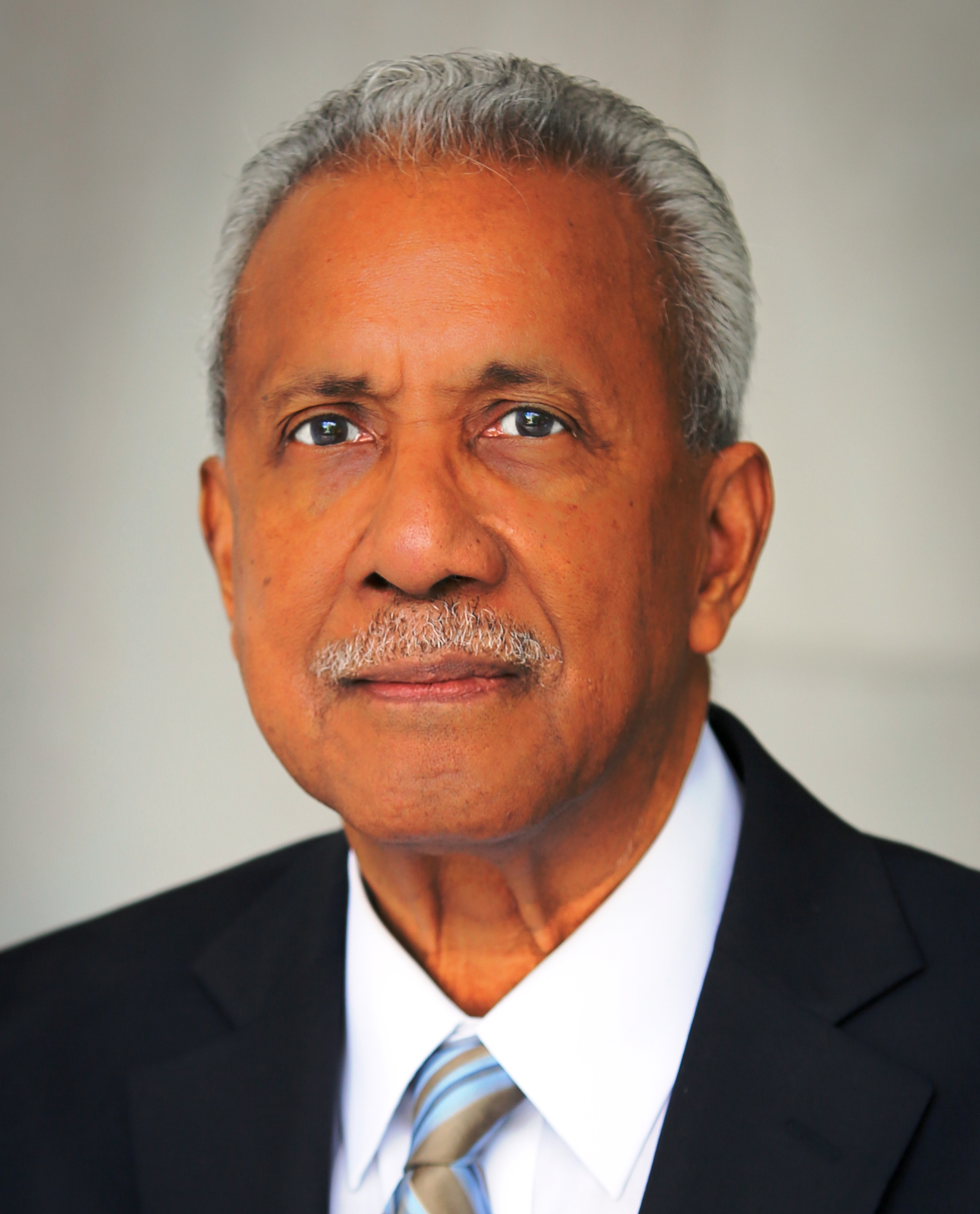
Either by destiny or perspicacity, Anthony Bryan’s father, the distinguished legislator Victor Bryan, chose to locate his family home on Gaston-Johnson Street, across from Fatima College.
So attending Fatima College became a ‘walk over’ for young Tony Bryan (Fatima Years: 1950-1957).
He built his early academic foundation, and enjoyed extra-curricular activities in music, football, and in competitive rowing and swimming as a member of First Fatima Sea Scouts. He earned his Bachelor’s, Master’s and PhD from the University of Nebraska. Dr Bryan grew as a scholar, securing tenure at the University of Rhode Island as Professor of Latin American History (fluent in Spanish), and at The UWI-St Augustine, as Professor/Director of the Institute of International Relations.
A visiting Professor at universities in Europe and the US, he also held senior scholar attachments in world policy-making bodies, and served as a member of several Cabinet-appointed Committees in T&T.
Emeritus Professor Bryan is a prolific contributor to global publications, a high-in-demand public speaker, and adviser to public and private sector bodies in North and South America, and the Caribbean…in spheres of energy, trade, transnational security, and an eclectic range of geopolitical matters.
Q: You are a leading scholar on Regional security issues in Central America and the Caribbean, and a scholar and independent consultant on energy development (oil and natural gas), energy security, and energy geopolitics in the region. What led you to specialize in those fields?
A: I began to research and consult in those fields about mid-point in my professional academic career. Three members of my immediate family were at professional and management levels in the oil and gas industry. As a young man my father had been the confidential secretary to the General Manager of Mene Grande Oil Company in Maracaibo, Venezuela, and subsequently held a similar post with Trinidad Leaseholds in La Brea, T&T. In a strange way I must have had a DNA connection to the energy field.
Q: You have been a visiting professor at several major U.S. and European universities including The University of Texas at Austin, Indiana University at Bloomington, Georgetown University in Washington D.C., and the Graduate School of International Studies at the University of Geneva. Explain the role of a visiting professor, and are there any particular topics or subjects on which you lecture?
A: Visiting professors are invited for a period (ranging from a semester to two years) away from the home University at which they enjoy professorial status or tenure. They are expected to enhance the usual course offerings, or become resident experts in a specific field for the host University. I was invited because of my ongoing research and writing in Caribbean and Latin American International Relations.
Q: If you could go back in time, what would you change about your experience at Fatima?
A: Nothing much. It was a young and small school. Although it evolved from the teaching traditions of the Holy Ghost Fathers in Ireland, it was finding its own way and there was always room for innovation and experimentation. During my time its student body reflected the diverse society that is T&T.
Q: Did living on Gaston-Johnson Street influence your choice of Fatima College for Secondary School?
A: Perhaps. The proximity was an advantage when you heard the first bell in the morning, or wanted to lime after school with the boys. But it was a disadvantage if you wanted to “break biche.”
Q: Describe the culture of the school in your time?
A: In my time, students from Woodbrook and St. James put a cultural stamp on the school. The student body came from all over the country but it had started out as a Woodbrook school. The first classes were held at St. Theresa’s until it occupied its own property on Mucurapo Road. The facilities were not great. Those of us who played football opposite, in the open field of what was then called “Yankee Land,” were very dexterous in trying to avoid the copious amount of cow-dung deposited by the grazing animals. Sometimes a misplaced kick at the dung instead of the ball resulted in loud laughter from the spectators and a flurry of expletives from the players who were afflicted!
Q: Tell us about your memories at Fatima – pleasant and/or non-pleasant? Strangest or fondest memories? Did you have any nicknames?
A: Pleasant: First Fatima Sea Scouts, and playing music just after school hours with Clive Bradley (who became one of the greatest musical arrangers for pan and calypso) and William Aguiton (I believe, the first persons of colour to rise to the top of the Hilton Hotel International hierarchy.) We were a trio and later expanded into a short-lived
Woodbrook-based musical combo. A number of the Fatima boys of my time played pan with the legendary Crossfire Steel Band in Benares Street, St. James. I recall Len “Boogsie” Sharpe (who was perhaps a ten-year-old) as a member playing tenor-pan.
Unpleasant: Several bloody skirmishes between students during recess time. In retrospect it was not unexpected as youthful expressions of manhood.
Q: What subjects did you do at Form 6 and why?
A: I did not attend Form 6. I left after Senior Cambridge exams, and did three extra University of London GCE courses while I worked in the family business for a year. I then entered University in the US.
Q: Which teacher and/or priest positively impacted your school experience and life the most and which one did you give the most trouble?
A: Father Ryan was the main influence. Mr. Earl Augustus who taught Latin was a brilliant teacher. Other teachers (including some of the Prefects from Ireland) were a competent group. I do not recall giving any of them trouble.
Q: Did you play any sports or take part in any extra-curricular activities at Fatima?
A: I rowed double sculls (with Gordon Borde who later became a top executive with Neal and Massy), swam competitively against St. Mary’s College and QRC, was a member of the Water Polo team, and of the B Colts football team. I was also a member of the Fatima Choir. I played guitar with the choir and sang until my voice broke during practice one year—at which point I was ejected from that august body by Father Cochrane who had founded and led the St Dominic Savio Choir!
Q: Father Ryan was the school Principal during your time. What kind of Principal was he?
A: He was a majestic figure! He ran a well disciplined school, but for the students he was always approachable.
Q: What does ‘Nitendo Vinces’ mean to you?
A: It has always meant to me what Father Byrne our first Principal intended i.e. By striving you conquer. I also live by an extension of that principle: “Life’s challenges are not supposed to paralyze you, they are supposed to help you discover who you are.”
Q: After leaving Fatima, you attended the University of Nebraska where you earned your Bachelor’s, Master’s and PhD degrees. Explain your choice of University and area of study.
A: The more adventurous among us went to universities in the Canadian midwest or in my case to a large U.S. midwestern university that was established in 1869. I chose not to apply to universities on the East Coast specifically those in New York City or Washington, D.C. I was interested in experiencing the sheer size of the country in a different way. When I entered there were about 800 students (in a university population of 13,000) from Africa, Europe, and Latin America studying in a variety of fields that only large universities of that sort could offer. A pleasant surprise was that there were a dozen world class Jamaican Track-stars who were on athletic scholarships. (That tradition continues and I recall that Olympic medallist and World Record holder Merlene Ottey was one of the famous Jamaican Olympic stars who graduated from Nebraska.)
My undergraduate studies were in Business Administration, and my MA and PhD were in Latin American History. I spoke Spanish fluently and one university degree led right to another since some of the top faculty in my field had been recruited to the University of Nebraska because of excellent funding for Area Studies provided by grants from the federal government.
Q: If all your teachers were still there, who would you check first on visiting Fatima today, and which classmates would you get together for a lime?
A: Teachers: Father Ryan, Father Harkins, Mr. Craigwell, Mr. Earl Augustus and Mr. Albert Alleyne.
Classmates and contemporaries: William Aguiton, Richard James, Peter George, Alec Clarke; of the younger set, Winston Dolly and Alfred Aguiton. Others such as Clive Bradley, Len Barnes and Derek Johnson are deceased.
Q: What part of Fatima life do you miss the most?
A: The camaraderie, the school spirit and the Sea Scouts.
Q: Have you been able to maintain friendships with your classmates since school? Did your class year ever have a reunion?
A: I have maintained friendships with many who were in my era. On occasion we lime at Harvard Club in Woodbrook. I lived abroad for many years, so I cannot tell if the Class of 1957 ever had a reunion.
Q: In 1976 you were a university professor in the U.S. with a tenured position and gave it up to return to Trinidad mainly to get your son into Fatima College. Explain that decision.
A: My wife and I were both Associate Professors in the U.S. and we both were offered good positions at UWI St. Augustine in 1976. I subsequently served as the Professor and Director of the Institute of International Relations for a decade. Our children were born in the U.S. and they were dual citizens. We wanted them to live continuously for a time in Trinidad to enjoy their immediate and extended families. In addition, my spouse had attended Bishop Anstey High School and I was a Fatima old boy. Logically our daughter went to BAHS and our son to Fatima. Returning to T&T at that time was one of the best decisions we ever made.
Q: What years did your son attend Fatima? Did you two often compare notes between his time at Fatima and yours? And if so, what striking similarities and differences existed between your eras?
A: My son Roget Bryan attended Fatima from 1985 to 1990. He did O levels in 1990. He and Ato Boldon (among others) were classmates. We do not often compare the two eras, but once he made the observation that five years after he left, the values of some of the succeeding generation were totally different, and not in a positive way!
Q: You are the author/editor of some 10 books and numerous articles, and your perspectives have appeared in energy publications such as Latin-American Energy Advisor, Energy Caribbean, Petroleum World, and Upstream; and in business/ trade publications such as: Latin Finance, Latin American Monitor, and the Economist. Is there any perspective you shared that was viewed as highly controversial at the time? Or any that received the most accolades?
A: I was among a group of energy consultants that were able to signal T&T’s emergence as a gas economy, rather than an oil economy. My research was funded by a grant made to the Center for Strategic and International Studies (CSIS) in Washington D.C. where I was a Senior Associate. The shift to natural gas was not controversial, but it took some time before the public and some politicians began to accept the idea that oil was not as important as natural gas in our energy mix.
Also in a November 2017 article that appeared in leading newspapers around the world, I discussed whether Guyana’s massive oil finds would lead to boom or bust. I described the hurdles and pitfalls that the country would face if it did not take preemptive and appropriate action during its transition. I was criticized by some Guyanese officials for being negative. They were full of optimism. Today, many in authority are beginning to realize that the country and its human resources are by no means adequately prepared for the windfall that is to begin in 2020.
Q: Given your extensive scholarly writing on the regional energy market, what do you see as Trinidad’s future role in the energy industry, given the current state of the economy and reported dwindling natural gas reserves?
A: I still see a bright future for natural gas and to some extent for oil. The gas reserves are increasing now in mid-2019 because of significant discoveries. In fact the latest fields are more gas prone than oil rich. Our cross-border arrangements with Venezuela (regardless of who is in power there) should yield even more gas to the benefit of both countries. The energy sector is a shining beacon in our slow climb to economic recovery. But this is really the time for T&T and the Region to invest heavily in various forms of renewable energy. The sun shines, the wind blows, and the cost of investing in renewable energy systems such as solar and wind is at an all-time low. We cannot miss the boat on this one!
Q: Does the development of the Guyanese energy industry pose challenges or opportunities for Trinidad and Tobago?
A: The development of the Guyanese energy industry is a magnificent opportunity for Trinidad. Training an adequate local Guyanese human resource base for the industry and supplying local content will take a long time. T&T has a very high level of expertise in the oil and gas industry, and talent to spare. T&T energy service companies, with more than 100 years of industry experience to draw on, will be of mutual benefit to both Guyana and T&T.
Q: What are your thoughts on the suggestion from many that Trinidad should switch from its dependence on energy and instead seek to build the tourism industry?
A: T&T is way behind the tourism-dependent Caribbean nations with respect to the industry. T&T’s dependence on energy will persist, but it should gradually become less of a determining factor in the nation’s economy matrix if the economy is diversified. The tourism industry will bring added value, if handled intelligently.
Q: Should the State continue to be involved in the energy business via companies such as NGC and Petrotrin or is there more merit in privatization?
A: The state should be involved through various corporate or statutory mechanisms. Privatisation has its merits, but our success has been mainly at the level of PPP (Private-public partnerships.) In fact, Phoenix Park Gas Processors Limited (PPGPL) is our gold standard as a PPP.
Q: Is there an economical case for a Regional, small-scale LNG market?
A: There is. But we have missed a major opportunity to supply our Caribbean neighbours with small trades of LNG. In part, because of apparent bureaucratic delays, and a temporary shortfall in the supply of natural gas, we have ceded that market to Jamaica, Puerto Rico, and the Dominican Republic. They have partnered with U.S. companies such as Fortress Energy to become regional hubs to supply LNG.
Q: Your Regional security works include: “Gangs in Central America: An Essay on Evolution and Changing Dynamics” in the book Gangs in the Caribbean (Cambridge Scholars, 2013); “Democracy and Security: Observations from Mexico, Central America and the Caribbean” in Latin American Policy (Vol.3, No 1, 2012); Building Regional Security Cooperation in the 21st Century: The Case of the Caribbean Regional Security System. You were also a lead author with Leo Powell for the study Drugs, Guns and Cash: Analysis and Proposals on How to Manage the Crisis in Central America (Guatemala: Fundesa, 2012). And you served for several years as a consultant and adviser to the CARICOM Regional Task Force on Crime and Security. Based on your experience and what you have learned over the years, is there any policy/procedure successfully utilized internationally that you would like to see applied and implemented locally to help counter the current crime situation?
A: Some of these policies and procedures are: (1) Provide enough human intelligence on the ground to understand the threat and vulnerabilities. (2) Create functioning institutions both to investigate and judicially prosecute criminal organizations that can be bolstered through the implementation of vetted police, military units and judicial corps which are specially trained and protected from reprisals. (3) Any link between organized crime and politics, through campaign finance and the capture of parties and elected officials by moneyed interests, must be broken; otherwise the State and its authorities can become effective and corrupt abettors of criminal activities. (4) The political leaders in T&T and the Region must address the systems of skewed distribution of wealth, corruption, unrelenting violence and public insecurity. (5) Strategies must go beyond immediate prescriptions and attend to the social and educational needs of youth who today are involved in, or are at risk of becoming involved, in some level of organized crime. Our strategies now must be tailored to rescue the generations to come.
Finally, to be clear, while the problems have produced a plethora of detailed studies, analyses and recommendations, actual solutions and plans of action remain scarce or fall short of implementation.
Q: Besides energy and Regional security, your writings over the years have cut across themes such as: trade, tourism, diplomacy, the foreign relations of individual States, comparisons of Latin American and Caribbean integration movements and theories, homeland security, inter-American relations, U.S-Latin American Relations, and Caribbean border control management. That’s quite an extensive range of fields. Do you consider yourself a jack of all trades?
A: I do not. But I think at this stage of my life and career many of my contributions continue to have a good shelf life. What I have learned over the years is that investigating one thing usually leads to another, because we live in an interconnected universe. Some academics have locked themselves into self-imposed silos that limit expansive thought, and are unwilling to take the risks that push the investigative envelope. Those of us who have had the opportunity to engage in policy-making, or move into ‘on-the-ground’ implementation of those policies, are very comfortable with multifaceted levels of thought and analysis.
Q: What would you say has been the highest point of your life/career so far?
A:There are several high points: (1) Appointment at various times as a senior scholar to three of the world’s major “think tanks” in Washington, D.C–including the Carnegie Endowment for International Peace, the Woodrow Wilson International Center for Scholars, and the Center for Strategic and International Studies. (2) Receipt of a major grant from the MacArthur Foundation to research Border Controls in four Caribbean countries. (3) Giving testimonies on Caribbean Trade and Security issues before Committees of the United States Congress (4) Service on Cabinet appointed committees to review and advise on T&T’s foreign policy and diplomacy.
Q: What morals and values do you carry from Fatima into your professional life?
A: Discipline, teamwork, and the value of professional respect for self and colleagues.
Q: Please introduce us to your family (wife and children).
A: My late wife (nee Avril Dolly) was a T&T government scholar, a Ph.D. in Spanish Language and Linguistics, and a professor of Spanish and Latin American Literature and Drama. My daughter Anique is a medical doctor in Miami who specializes in the challenging field of metabolic and Anti-Aging medicine. My son Roget is the lead Attorney for a city in the Florida Keys. He is also one of the Founders and the President of a well-established management company for footballers and other athletes worldwide.
Q: What do you do for leisure? Any hobbies? What sports and teams do you follow?
A: Leisure: I indulge in worldwide travel, music, and the pursuit of good literature. Sports: I follow premier league football in Europe and Latin America. Favourite teams: Liverpool and Barcelona.
Q: Who is your role model (if any)?
A: My parents.
Q: What do you see as the biggest challenge for the young boys of this era and what can Fatima do to support this?
A: Some traditional careers and professions are being phased out—the onset of Artificial Intelligence (AI) is making them redundant. The young boys have to adjust and open their minds to the new opportunities even though they may appear elusive at first. Fatima has to stay ahead of the curve in adjusting the curriculum to meet these 21st Century challenges which will be disruptive.
Q: How would you advise a young Fatima student thinking about his future?
A: First, become very interested in AI (artificial intelligence), and in the Fourth Industrial Revolution that is currently taking place. These developments will blur the lines between the labour of human beings and the efficiency of computers. Secondly, climate change is probably the biggest challenge to his future. He must put some of his effort into measures to mitigate the process since we are a Small Island Developing State and very vulnerable to changes in the environment. Frankly, the future is already here. Adjust and be inventive.
Q: You were a member of the inaugural batch of individuals inducted into the Fatima College Hall of Achievement. What did receiving this award mean to you?
A: It was indeed an honour and an achievement which makes me proud. I have received[i] several international awards, but this is special.
Q: What do you feel about Fatima, how it’s progressed?
A: The infrastructure is impressive, and the public image is good. I know very little about the classroom dynamics today, but it is still regarded as a prestige school. Of course not being a student anymore, I am unable to judge the current “esprit de corps.”
Q: Over the years FOBA has invested in school improvement projects such as installing smart boards, air- conditioning classrooms and sustaining the sports teams with coaches and kits. What projects or initiatives would you like to see the Alunmi body and school implement in the future?
A: FOBA has done a wonderful job. Judging by the excellent website, there is a spirit of entrepreneurship that prevails. I am familiar in the U.S. where I live with the power that University Alumni Associations have in fund raising, the establishment of endowments, and using the prestige and connections of some of its alumni to bring attention to the institution for the benefit of the student body. I do not know how much flexibility FOBA has in pursuing such initiatives, but some of these appear to be underway.
Q: Do you have any recommendations to FOBA as to what benefit you would appreciate as an alum?
A: Perhaps the promotion of an active Alumni Association to support the goals of the school and to strengthen ties between alumni, the community and Fatima would be an asset. The FOBA may be heading in that direction.
Q: What’s your guilty pleasure (if any)?
A: Good movies.
Q: What is your favorite food?
A: All—except shellfish and porridge.
Q: What did you eat for breakfast this morning?
A: Honestly, I can’t remember. But it was not haute cuisine!
Q: What did we miss that you’d like to share?
A: I may have said too much already.
Q: Any closing comments?
A: Our T&T has a wonderful human resource base. Schools like Fatima have a duty to improve that base constantly. The principles and virtues that one learns in Secondary School, influence you for the rest of your life. Thank you for asking me to contribute to the Past Student knowledge-base for the College.
